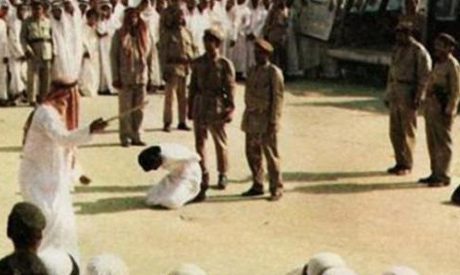Photo: Public beheading is the most common method of execution in Saudi Arabia. © Private
Saudi Arabia is well on track to far surpass its previous annual execution records, Amnesty International warned after three more men were put to death this morning, bringing the total number of executions in the country to 44 so far this year.
That is fully four times the number of people executed in the Gulf Kingdom during the same period last year – 11. Public beheading is the most common method of execution.
This unprecedented spike in executions constitutes a chilling race to the bottom for a country that is already among the most prolific executioners on the planet.
Said Boumedouha, Deputy Director of Amnesty International’s Middle East and North Africa Programme
“This unprecedented spike in executions constitutes a chilling race to the bottom for a country that is already among the most prolific executioners on the planet,” said Said Boumedouha, Deputy Director of Amnesty International’s Middle East and North Africa Programme.
“If this alarming execution rate continues, Saudi Arabia is well on track to surpass its previous records, putting it out of step with the vast majority of countries around the world that have now rejected the death penalty in law or practice.”
The three men executed this morning include a Saudi Arabian, a Yemeni and a Syrian national, all for drug-related offences.
“The fact that around half of the executions carried out so far this year were for drug-related offences contradicts the Saudi Arabian authorities’ claims at the United Nations Human Rights Council that the death penalty is imposed for only the most serious crimes. This claim is far from the truth, as international standards are clear that this means crimes involving intentional killing,” said Said Boumedouha.
The head of Saudi Arabia’s delegation also claimed last week at the UN Human Rights Council in Geneva that the death penalty is authorized under Shari’a law. He added that Saudi Arabia only carries out executions after thorough and fair trials.
However, this contradicts a recent announcement by the Supreme Court that proof beyond reasonable doubt of a suspect’s guilt is not needed in order for a court to hand down a sentence, including a death sentence, if the crime is not punishable under Qisas (retribution) or Hadd (divinely sanctioned punishments in Shari’a).
In recent years, Saudi Arabia has regularly been among the world’s top five executioners. In a report due out on 1 April, Amnesty International will release statistics on the Kingdom’s use of the death penalty in 2014.
As of 31 December 2014, 140 countries are abolitionist in law or practice. Amnesty International opposes the death penalty in all cases without exception, regardless of the nature or circumstances of the crime; the guilt or innocence of the individual; or the method of execution.


